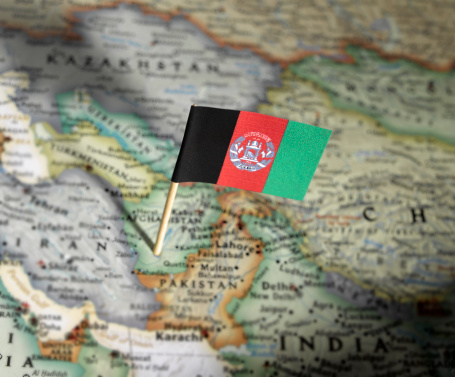Time's Battleland: "US bases in Afghanistan for decades?"
 Wednesday, June 15, 2011 at 12:39PM
Wednesday, June 15, 2011 at 12:39PM 
Waiting on the Obama speech explaining this one.
Guardian piece Monday predicts that current US-Afghan talks will cement a very long-term deal on presence [hat tip to World Politics Review Media Roundup].
American and Afghan officials are locked in increasingly acrimonious secret talks about a long-term security agreement which is likely to see US troops, spies and air power based in the troubled country for decades. [italics mine]
This is described officially as a "strategic partnership," but nobody in their right mind would describe it as such. It's a dependency - pure and simple. The longer we stay, the more we'll infantilize the system. Ten years in and virtually everything we've set about to create is still described as "fragile" - meaning it collapses and disappears the minute we pull out.
Read the entire post at Time's Battleland.

 Afghanistan,
Afghanistan,  China,
China,  India,
India,  Iran,
Iran,  Obama Administration,
Obama Administration,  Pakistan,
Pakistan,  Russia,
Russia,  US foreign policy | in
US foreign policy | in  Time's Battleland |
Time's Battleland |  Email Article |
Email Article |  Permalink |
Permalink |  Print Article
Print Article 









Reader Comments (2)
The Russians left a "government" behind when they left. As I recall it was one year to the day after the last Russian Soldier walked out of Afghanistan that the Mujaheddin captured Kabul and hung the Mayor from a lamp post. The only thing that surprised me was that Kabul had lamp posts. And the only reason it took a whole year was that the Mujaheddin fought among themselves for several months before getting organized.
Today my wife and I went down to San Diego harbor to welcome home the nuclear aircraft carrier U.S.S. Vinson. She returns after a long deployment, during which she had the honor of receiving and disposing of the body of our hated enemy, Osama Bin Laden. Quite a sight to see, with most of her 5,000 crew lining the flight deck in their dress whites.
Welcome home and well done Navy.
The "strategy" that all Presidents are most concerned with is political strategy. Unfortunately, domestic political reality has forced the US into an untenable position in Afghanistan.
A rapid withdrawal of US troops runs a real risk that the incompetent Karzai government could be overrun in very short order and we could see the Taliban parading in triumph through the streets of Kabul. If this happens before the November 2012 election, you can rest assured that there will be non-stop ads featuring pictures of the triumphant Taliban and branding Obama as a typical weak Democrat who lost Afghanistan the same way Jimmy Carter lost Iran. Nothing is more fatal to a President than a perception of weakness. So expect Obama to make minimal troop reductions and continue muddling along in Afghanistan. He is not worried that the Republicans will attack him from an antiwar perspective because he has Republican heroes like Gates and Petraeus to give him cover. Of course, as TPMB correctly points out, this is totally lame from the perspective of grand strategy.
TPMB correctly points out that Obama could have avoided this dilemma by making more of an effort to involve regional powers. I think that Obama understands this, as he did make some tentative efforts to get India more involved. However, those efforts have been far too tentative and they have been ham-strung by our desire not to antagonize Pakistan.
Ultimately, the only way a regional strategy could have succeeded is if the US had drawn up a comprehensive cooperation agreement with China along the lines that TPMB proposed a few months ago. China is the key. Having China on our side would keep Pakistan in check. It also, ironically, would drive India closer to the US. If India perceived that the US was tilting towards China, India's likely response would be to try to do more to ingratiate itself with the US. Notwithstanding claims of US decline, the US remains the only superpower. This is not like the Cold War, where if the US tilted one way an opposing country could compensate by sidling up to the Soviet Union, as India did in the '70s. That option no longer exists.
The problem is that a pact with China along the lines suggested by TPMB would have been domestic political poison. Both factions in the Republican foreign policy establishment - the realists and the neo-cons - support the idea of a Chinese military threat and the Republicans would have attacked a pact with China as the equivalent of Munich. And, most of the major constituencies in the Democratic Party - the human rights crowd, organized labor, Hollywood fans of the Dalai Lama - also would have attacked Obama for "coddling" China. About the only people who see the wisdom of such a pact with China are devotees of this website, and unfortunately, there are not enough of us to sway US public opinion.